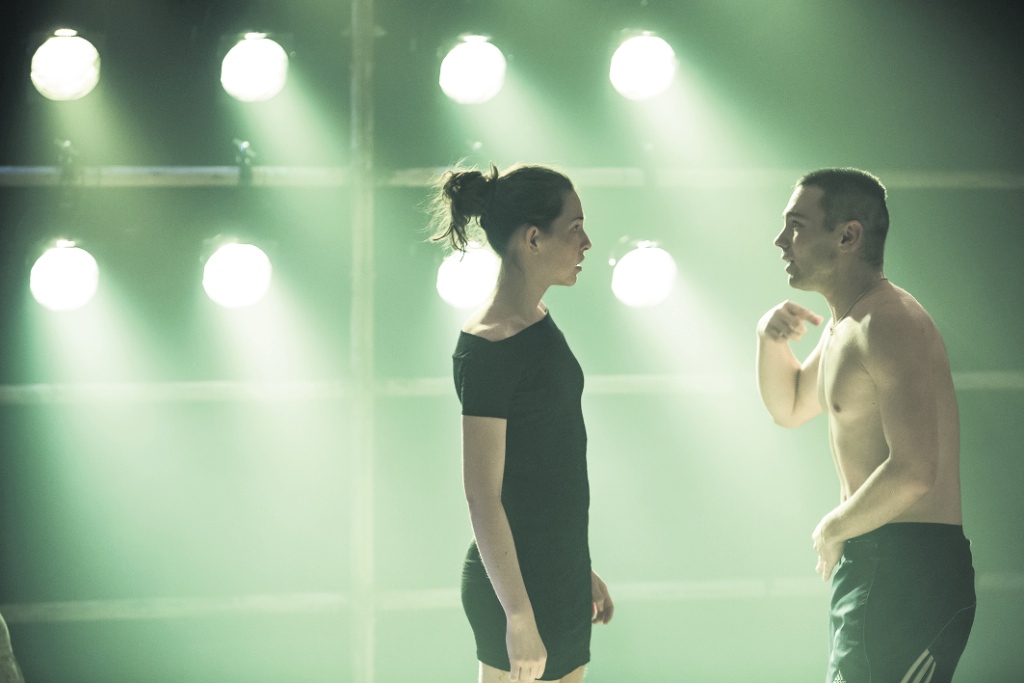Yen at the Royal Court review: A candid exploration of teenage poverty, sexuality and neglect

Royal Court | ★★★★☆
In the new post-Benefits Street dispensation, references to “poverty porn” have become commonplace. Initially this meant a sort of guilty pleasure at watching the pitiful antics of a presumably scrounging underclass, but the term has become ever less metaphorical. Earlier this month social commentators flaunted their sincerest outrage at popular trouser-free streaming site PornHub’s revelation that last year “British Chav” rose 23 places, to number nine on its list of the country’s most popular search terms. In a deliberate bid to shock, Yen opens with an elision of the two meanings; shaven headed, shirtless, lumpenprole teen brothers discussing the porn they are streaming, using only the most graphic of language.
Even before things start, as the audience enters the theatre, the brothers are already on stage. They are full of restless energy, rolling about, thrusting, climbing the jungle gym-like set, slithering out from under sofa-beds. Part toddler, part troglodyte, they immediately appear dim-witted and dangerous, and their initial exchange does nothing to dispel the notion. Nor does the arrival of their neglectful, alcoholic mother. But when a neighbour, concerned for the welfare of their dog, inserts herself into their lives, the narrative moves away from a sort of mean-spirited Shameless, and momentarily the misery relents.
Although the quality and complexity of the narrative builds throughout the play, the way in which the characters reveal different aspects of themselves through their responses to one another demonstrates playwright Anna Jordan’s real flair for characterisation. The actors rise to the challenge, especially the younger brother, Bobbie, played by Jake Davies, who taps into the impulsive energy of a 13-year-old running off track, without responsible adult supervision. Likewise the well-intentioned neighbour Jenny, played by Annes Elwy, who is good, even saintly, without being sanctimonious, saccharine, or a simplistic saviour figure, ready to step in and rescue her social inferiors.
The staging, on the other hand is simplistic, bordering on the surreal. A dozen sodium lamps stand in for a big screen TV, while an electric bar heater plays a snarling Alsatian.
Walking out of the Royal Court, to the consumerist opulence of Sloane Square, the juxtaposition is stark, and it’s hard to shake the feeling you’ve just taken part in a little class tourism. If Yen’s purpose is to get you thinking about the state of the nation, then it succeeds.